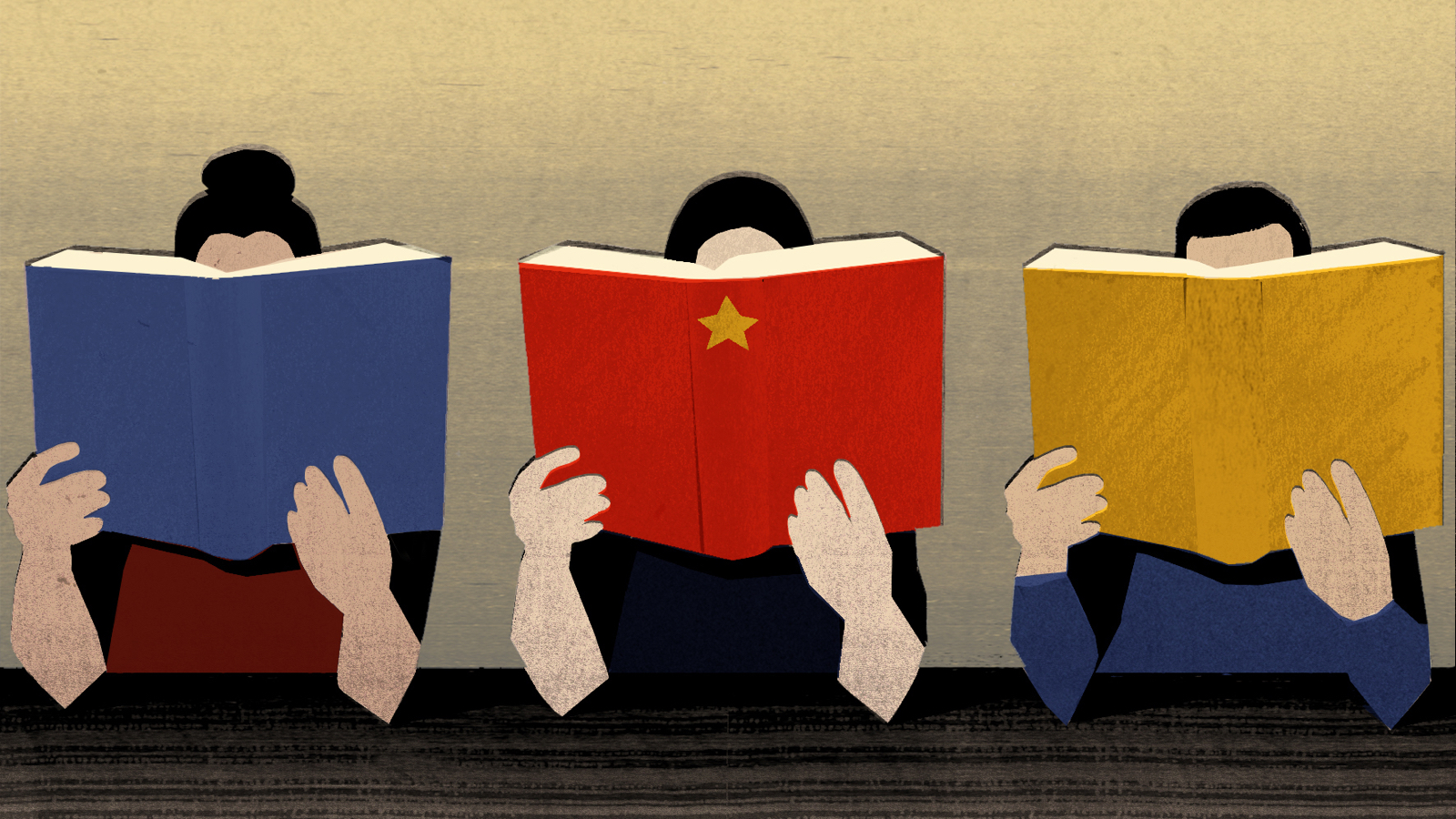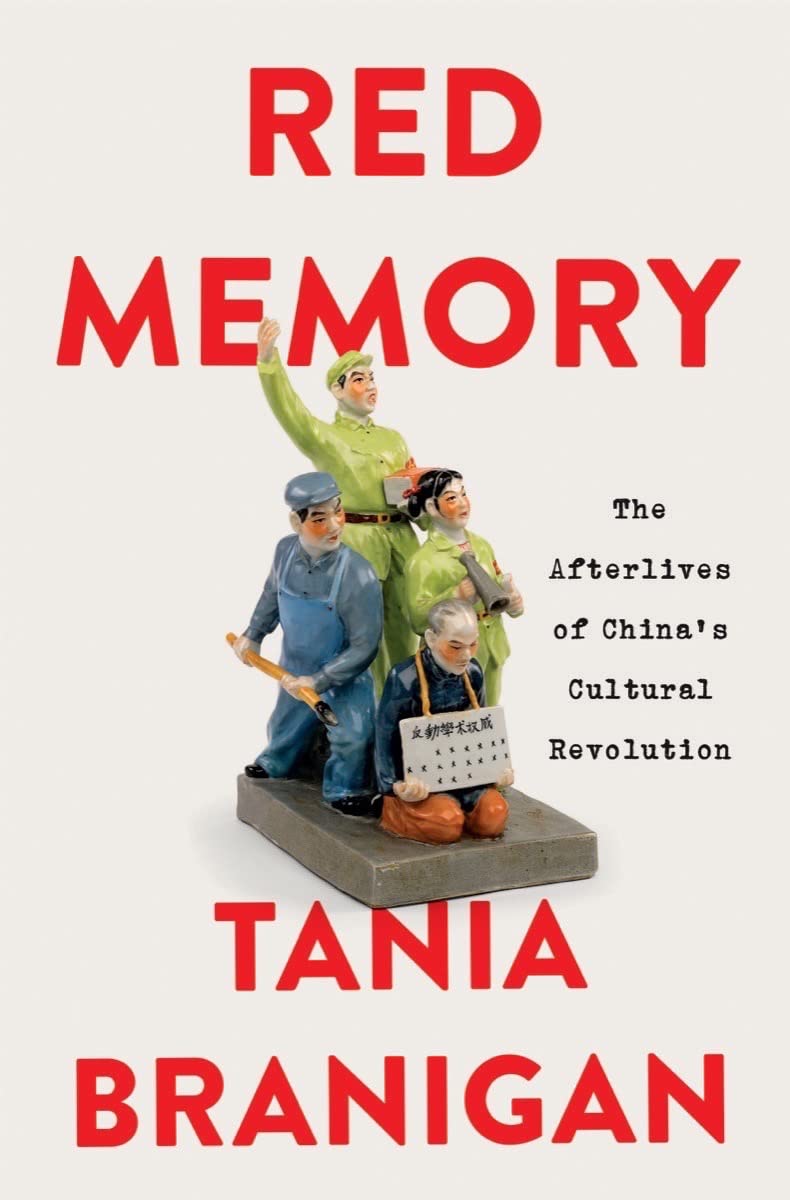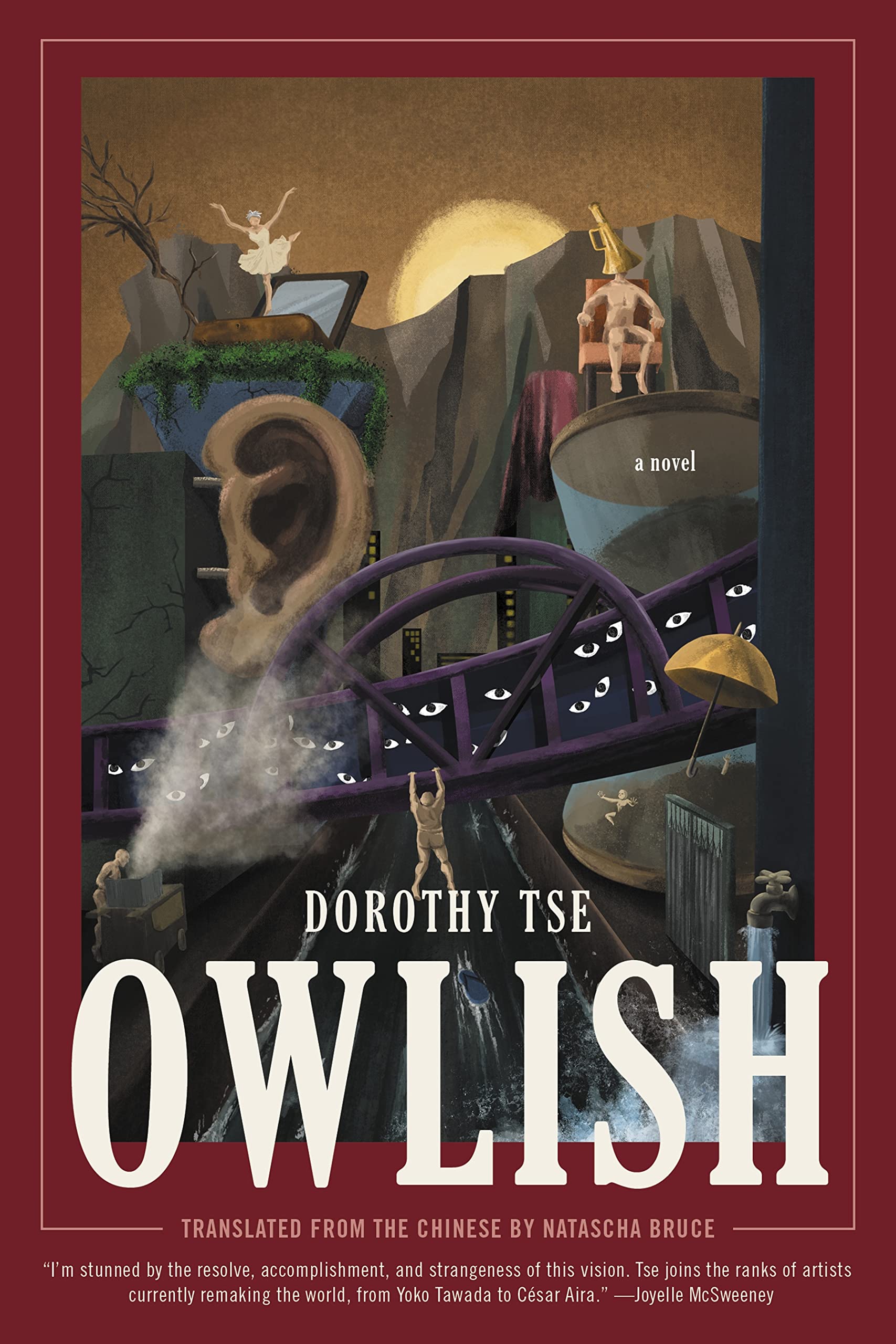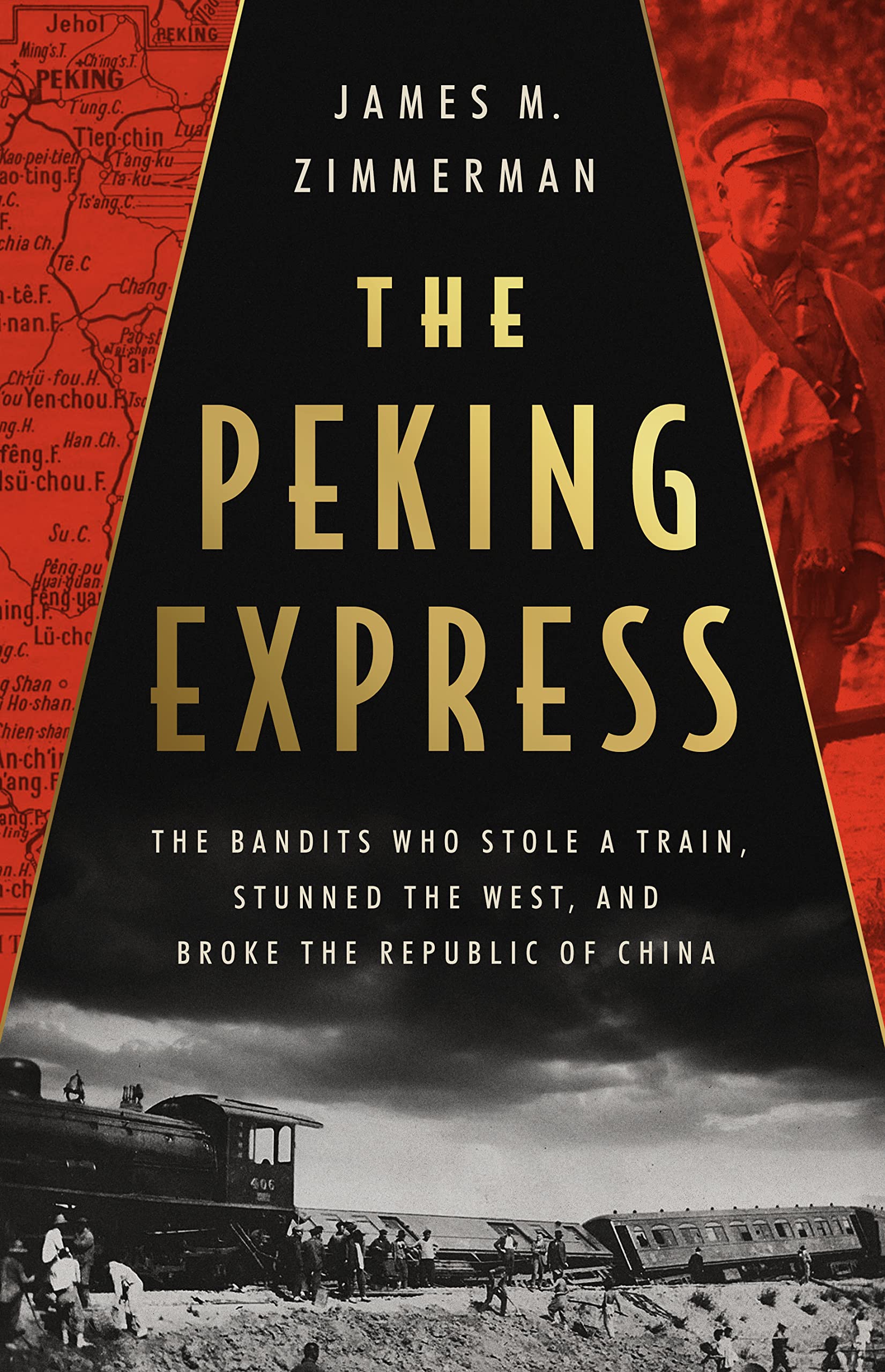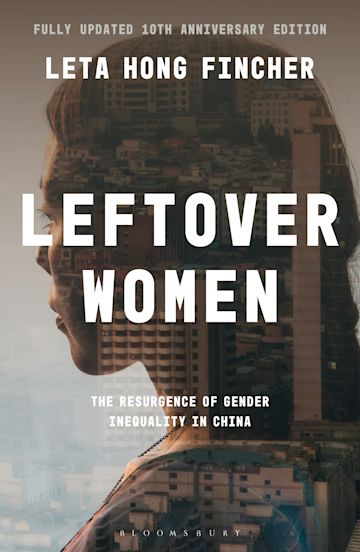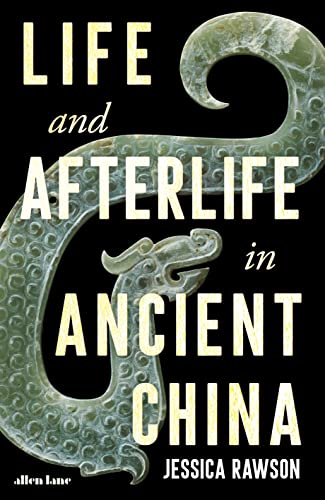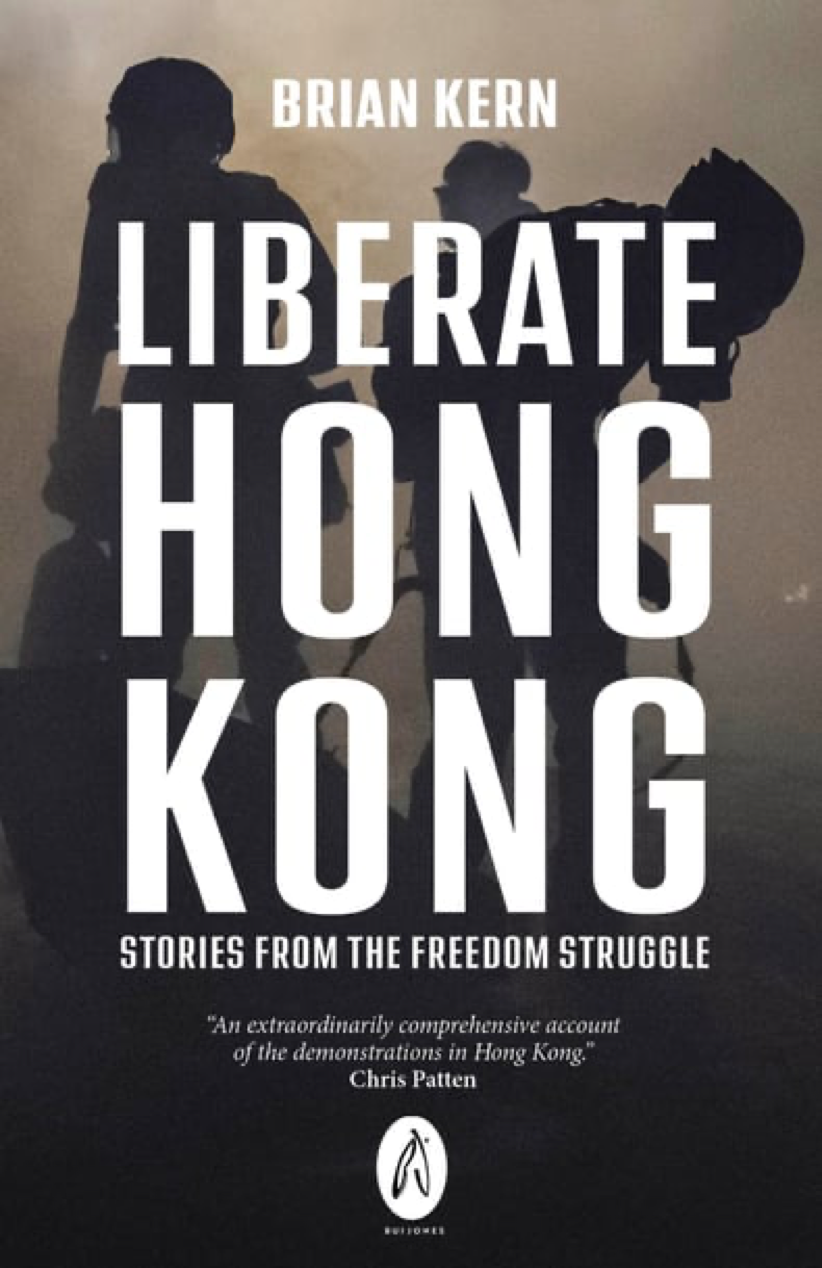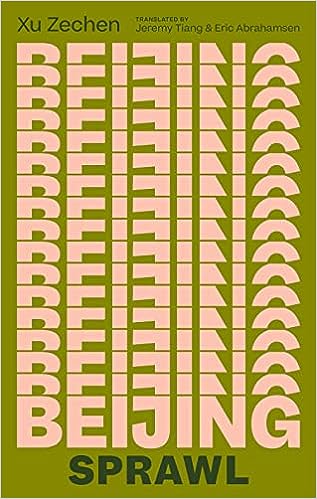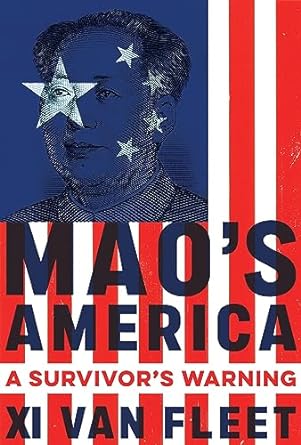Red Guards. Train hijackings. Allegorical cities. Romantic adventurers. Beijing drifters. Uyghur exiles. Hong Kong protestors. Tibetan travelogues. Taiwanese cookbooks. Chinese philosophy. Western sinology. Funeral rites. Political tracts. There was a cornucopia of China books to choose from in 2023.
At China Books Review, we’ve been tracking these titles since the beginning of the year (as I previously was at our sister site The Wire China since 2020). By our count, some 330 books in English relating to China (whether non-fiction about the Sinophone world, or translated fiction from it) were published in 2023. Some of those we have featured in the magazine, from longer review-essays to shorter argument-driven pieces, as well as excerpts, our podcast, video book talks, author Q&As and profiles. For fuller lists, also explore our book listings project, which breaks it all down into recent, upcoming and bestsellers.
To end the year, we’ve selected a handful of the best China books across a range of categories. We know that we’re missing a lot of other great titles, and that recommendations are subjective. Our intention, as ever, is merely to point readers towards readings that they may find interesting. We feature three top picks from our editors and columnists — in nonfiction, fiction, and Chinese-language titles — and also invited a variety of contributors and special guests to select their own picks, over a wide spectrum of topics and favoring titles not previously featured, alongside related articles and a reader letter.
That protean beast, the “China book,” has been around since at least the late 13th century, with what we featured on Tuesday as arguably the first widely available example. Since then, it has gone through many iterations, shifting with the sands of historical context — and changing perceptions of China across time and geography — up until the current era, with its exemplars (and offenders) as well as the phenomenon (now less egregious) of the red China book cover. Each year there are fresh, ripe pickings. We hope you find some good holiday reading among the below, and look forward with us to 2024’s crop.
– Alec Ash
EDITOR’S PICK: NONFICTION
Recommended by Alec Ash, Editor, China Books Review:
Red Memory
Living, Remembering and Forgetting China’s Cultural Revolution
Winner of the 2023 Cundill History Prize, the largest purse for non-fiction works in English, Red Memory stood out from the pack for us in a stellar year of China history books. The work, called “haunting and memorable” by the prize jurors, is not a rundown of what happened in the Cultural Revolution — enough ink has been spilled on that — but rather explores how memories of that period have been formed, distorted and suppressed. Based on detailed interviews from 2008 to 2015, when she was the Guardian’s China correspondent in Beijing, in pellucid prose Branigan humanizes the stories of those who lived through those times, talking to victims (angry and forgiving), perpetrators (guilty and not), and — an important perspective — those who are nostalgic for that era and its sense of common mission. She also examines how this traumatic past resonates in present politics, including Xi Jinping’s Mao-like cult of personality that risks repeating it.
Related: Read Yangyang Cheng’s review-essay on Red Memory, paired with Sparks by Ian Johnson and Michael Berry’s Translation, Disinformation, and Wuhan Diary
EDITOR’S PICK: FICTION
Recommended by Jack Hargreaves, Chinese Literature columnist, China Books Review:
Owlish
Of all the books newly translated from Chinese that I read this year, Owlish by Dorothy Tse is the one that feels the most timely: not only for its documenting of a momentous and forceful transition in Hong Kong (via the fictional state of “Nevers”), but also for its wrestling with questions, more generally, of systemic oppression and complicity. It is also a weird book — “weirdly disturbing,” says Paper Republic’s Nicky Harman — that shifts gears from zany to deranged, sometimes in a single sentence. And while some of the more twisted sexual proclivities enacted in the book might stick in your mind for a while to come, it is the final image we are left with — of a woman used and cast aside, drowned and bleeding — that will prove the more enduring. “You should have seen this coming,” Tse writes, perhaps addressing the reader directly. The signs were all there. The question is: is it the woman’s fate she is talking about, or is it Hong Kong’s?
Related: Read Jack Hargreaves’ round-up of more new Chinese literature in translation
EDITOR’S PICK: CHINESE-LANGUAGE
Recommended by Na Zhong, What China’s Reading columnist, China Books Review:
The Serpentine Band
宛转环
Qin dynasty craftsmen try to imbue life into their puppets via machine learning. A retired Ming dynasty official, inspired by a jade bracelet that bends space like a Möbius strip, carves out a classical Chinese garden that enables time travel. Such are the spectacular worlds woven by Congyun “Mu Ming” Gu in her debut story collection, The Serpentine Band, in which the West and East, the ancient and the cutting-edge, converge in unexpected yet convincing ways. A former Google programmer turned speculative fiction writer, Gu is acutely aware of the impact that technological advances in AI have on storytelling. With the ambition and vision of predecessors such as Ted Chiang and Ken Liu, she takes on the seemingly impossible task of bridging the divide between the humanities and technology, creating a narrative that is expansive enough for our information-saturated world. You can get a taste of the collection by reading a translation of the titular story, “The Serpentine Band,” on Clarkesworld.
Related: Read Na Zhong’s column What China’s Reading for more Chinese book picks
HISTORY
Recommended by Jeremiah Jenne, The China Archive columnist, China Books Review:
The Peking Express
The Bandits Who Stole a Train, Stunned the West, and Broke the Republic of China
In The Peking Express, James Zimmerman offers both a compelling historical narrative and a thrilling adventure. Set against the backdrop of 1920s China, when regional warlords and outside powers were tearing apart the country, the eponymous train symbolized China’s troubled modernity. It was capable of (for the time) high-speed travel between Shanghai and Beijing, but was armored to protect against the bandit gangs that preyed along its route. Despite these precautions, on the night of May 5, 1923, a colorful cast of passengers found their fates tangled with an equally diverse band of kidnappers who seized the train in a brazen nighttime attack. Fans of Paul French’s Midnight in Peking, another true crime story from early 20th century China, will enjoy this tale brought to life by Beijing-based author Zimmerman’s blending of research and storytelling.
Related: Read Jeremiah Jenne’s China Archive pick on Marco Polo, arguably the first popular Western China writer — and the first white sexpat in Asia?
WOMEN’S RIGHTS
Recommended by Mary Kay Magistad, China Books Podcast host, China Books Review:
Leftover Women (10th anniversary edition)
The Resurgence of Gender Inequality in China
Women in China are staging a quiet revolution. Marriage rates have dropped for nine straight years. Fertility rates are now about half the replacement rate, despite the one-child policy ending in 2016. President Xi Jinping is urging women to stay home and have babies, but enough have voted with their feet that China now has a shrinking population and workforce, which could affect China’s future economic prospects. In her updated 10th anniversary edition of Leftover Women: The Resurgence of Gender Inequality in China, Leta Hong-Fincher persuasively argues that China’s Communist Party brought this on itself — through institutionalized sexism, a failure to protect women’s rights and safety within marriages, and regulations that are making divorce harder. Divorce rates have dropped, and so has women’s participation in the workforce, but China’s increasingly well-educated women have reason to pause before giving up their careers and independence. Read this book to better understand a seismic shift reshaping China.
Related: Read Zheng Churan’s review of an untranslated book on the lives of Chinese female workers; and Irene Zhang’s on the struggles of rural women
HISTORICAL FICTION
Recommended by Perry Link, Professor of Chinese Literature, UC Riverside:
The Woman Back from Moscow
In Pursuit of Beauty
Those who rule the Chinese Communist Party (CCP) today pin their claims to legitimacy in part upon an idealized version of their past: a Long March, spirited camaraderie, the founding of a “People’s Republic,” and so on. Paid scribes maintain a record that, even if it shifts from time to time, advertises immaculate virtue. In his wonderful new novel, the Chinese-American writer Ha Jin asks, in effect, “OK, but what really happened?” Tracing the life of dramatist Sun Weishi — adopted in her girlhood by Zhou Enlai, pursued romantically by Lin Biao, apparently raped by Mao Zedong,and eventually tortured to death at the hands of drama-rival Jiang Qing — Ha Jin offers 719 pages of well-researched “fiction” that tells more truth about CCP elite culture from the 1940s to the 1960s than is available anywhere else.
Related: Read Perry Link’s essay on how Xi Jinping’s China contains echoes from Mao Zedong’s, and how it differs
ARCHAEOLOGY
Recommended by Rana Mitter, Professor of Chinese History, Harvard University:
Life and Afterlife in Ancient China
Jessica Rawson’s Life and Afterlife in Ancient China is an innovative and important account of ancient Chinese culture for the general reader. It does a valuable service in explaining why ancient Chinese tombs — notably the famous tomb of the China’s first emperor, with its terracotta warriors — are so distinctive. The early Chinese did not seek to create an image of the afterlife, but to create a continuation of life, just in another material form. Yet the book’s major achievement is to show what Chinese material culture tells us about its creators’ assumptions about the world. This was a society that dug down, rather than building up (like the Egyptian pyramids), and which drew from influences across Eurasia while maintaining its own distinctive forms. Chinese culture emerged as distinctive because of ecology, building material and cereal crops, but it did so in the context of contacts across the Eurasian landmass. A sophisticated, eye-opening work.
Related: Read Rana Mitter’s review-essay on the legacy of Chiang Kai-shek
BIOGRAPHY
Recommended by Paul French, author of Midnight in Peking:
Chinese Dreams in Romantic England
The Life and Times of Thomas Manning
The amateur sinologist Thomas Manning’s fascination with China was sparked in the late 18th century by contact with the English Romantics and their fever dreams of the “East.” But how do you study China, and learn Chinese, when there are no libraries, university departments or teachers for it? Manning’s first attempted journey to China, in the early 19th century, was thwarted after being locked up by Napoleon in Paris; several shipwrecks; trying to sneak in via Tibet before being accused of espionage; and getting frustratingly stuck in Macao and Java. He finally managed to join the 1816 Amherst Embassy, and spent a single day in Peking. Despite these obstacles Manning remained enthralled by China his entire life, eventually building what was arguably Europe’s finest Chinese library, and becoming one of the first China scholars. His extraordinary quest is engagingly described by Edward Weech, the Librarian at the Royal Asiatic Society in London, where Manning’s correspondence resides.
READER LETTER
A Response by Daniel A. Bell
I did not write The Dean of Shandong, which Sam Crane reviewed critically in these pages, for those who are convinced the Chinese political system is evil and who wish for it to collapse. I wrote the book for those curious about the inner workings of Chinese academia, and I draw implications for evaluating the Chinese political system. Nor did I write the book for those who lack a sense of humor. My book deals with serious subject matter, but I wrote it with a light-hearted touch, heavy on the self-criticism, to show the humanity that informs my interactions with Chinese friends and colleagues, in contrast to negative stereotypes about China so pervasive in the West. But Crane seems to have read it as a deadly serious tract on Chinese politics.
Crane’s “review” consists of empty virtue signaling that has nothing to do with my book. He criticizes a couple of sentences out of context, devotes much effort to criticizing a book I wrote in 2015, and learned nothing from the new book. (I confess, I learned nothing from his review.) So why did he bother writing it? The reason is that he has a political axe to grind and that’s what he did. My political sin, it seems, is that I do not favor the overthrow of the Chinese political system. I plead guilty as charged. He also criticizes me for having hope that China improves. Here too, I plead guilty — though I do my best to give reasons for this hope, and it is not blind.
– Daniel A. Bell (University of Hong Kong)
XINJIANG
Recommended by Isabel Hilton, journalist and broadcaster:
Waiting to Be Arrested at Night
A Uyghur Poet’s Memoir of China’s Genocide
Tahir Hamut Izgil must count as one of the luckier Uyghur poets. Today, he and his family live in the United States, while other Uyghur writers and intellectuals are serving long prison sentences in Xinjiang province. Among the poets in jail is Izgil’s close friend Perhat Tursun — whose suffering compelled Izgil to write this memoir of the steadily tightening repression endured by Uyghurs in China. The book relates the author’s apprehensions as the security scrutiny of his world of culture and letters grows more intense and menacing. Having once served a prison sentence for planning to stay abroad, he has no illusions and sets in motion an elaborate escape plan for himself and his family. It’s a haunting, unforgettable account of the slow but relentless extinguishing of poetry, music and song; of hope slowly replaced by fear; and of the descent into unreason in which merely being a poet in whose work a culture is embedded becomes a crime against the state.
TIBET
Recommended by Melinda Liu, Newsweek Beijing bureau chief:
Old Lhasa
A Biography
If only, when I first visited Lhasa in 1980, this engaging book had already been published. Part travelogue, part practical guide, it is a luxurious tapestry of historical, religious and cultural threads that present Tibetan society in the capital of Lhasa as a rich, organic whole. It describes the role of the ragyabpa (“untouchable” caste) whom I observed officiating at a Tibetan sky burial. It would have answered the many questions I had when I met Muslims whose ancestors had lived in Lhasa for centuries. And it would have helped me to understand the significance of a huge image I saw of Mao Zedong, occupying the dusty central altar of a temple on which a Buddhist deity had once been displayed. Today, Lhasa has transformed from an almost medieval-feeling city into a modern metropolis. Aldrich’s work is an insightful companion for those desiring a deep dive into Lhasa, that helps explain what visitors can see — and also evokes what they cannot.
HONG KONG
Recommended by Jeffrey Wasserstrom, author of Vigil: Hong Kong on the Brink:
Liberate Hong Kong
Stories from the Freedom Struggle
The best part of Brian Kern’s lucid account of Hong Kong’s protest movement is the dialogues. In them the author — an American who was long-based in Hong Kong, teaching and participating in movements as an activist committed to non-violent civil disobedience — debates tactical and other issues with more militant fellow protesters. Kern’s candor and readiness to question the decisions he made during the volatile year of 2019 is appealing. Also striking is his empathy for youths who became convinced that the time for moderate strategies had passed. The book was first published by Mekong Review in 2020, under Kern’s pen name Kong Tsung-gan, which he had been using for years to protect himself and his family. When high profile media critical of the movement ran denunciations of him revealing his identity in August 2020, this generated controversy, as many readers had mistakenly assumed he was ethnically Chinese (he is white). Liberate Hong Kong was republished this year, with a new foreword that sets it in context, as the first book by a new independent publisher, Bui Jones, founded by Minh Bui Jones, who previously launched the magazines The Diplomat and Mekong Review.
TAIWANESE FOOD
Recommended by Fuchsia Dunlop, author of Invitation to a Banquet:
Made in Taiwan
Recipes and Stories from the Island Nation
Few cookbooks published in the last year have excited me more than this one. Meticulously researched, carefully observed and written with deep affection for Taiwan and its people, Made in Taiwan is a beautiful piece of work: not merely a compendium of recipes but a powerful argument for the unique character of Taiwanese cuisine, with its indigenous, Dutch, Japanese, Hokkien and diverse Chinese influences. Cooking instructions are interspersed with reportage and useful tips, and the author deftly negotiates the complexities of the different languages (English, Chinese characters, Hanyu pinyin and Taiwanese). The clarity and detail of the (mouthwatering) recipes is impressive, and the photographs, with their thoughtfully assembled props and evocation of Taiwanese life, are both atmospheric and informative. Among many other dishes, I can’t wait to try the peddler noodles, savory rice pudding and fried shrimp rolls. Given current international tensions, this book is, as Clarissa Wei writes, a timely reminder that Taiwan is “more than just a geopolitical chess piece or a controversial island near China with great night markets.”
Related: Read a Q&A with Fuchsia Dunlop on her book Invitation to a Banquet
CHINESE PHILOSOPHY
Recommended by Jianying Zha, writer, journalist and cultural commentator:
Ruling the Nation and Bringing Peace to the Land: An Interpretation of Xunxi
治国平天下: 荀子解读
This new Chinese-language book on the Xunzi (a 3rd century BCE classic, one of the foundational texts in Chinese philosophy) is authored by Wang Meng, the former Chinese Minister of Culture and an eminent author in his own right. Following a long tradition of Chinese literati translating, annotating and commenting on a revered classic, the book adopts a mixed genre approach. The result is a shrewd interpretive work, at once personal, literary and political. Written in simple, unacademic language, with a deceptively light touch and a tone that switches between serious and playful, Wang reassesses Xunzi’s philosophy with some astute insights of his own, carefully balancing due fealty, gentle critique and clever re-appropriation. It’s a unique blend of literary flair and political savvy — a trademark of Wang Meng, who has held a high profile in both the literature and politics of mainland China for seven decades.
WESTERN SINOLOGY IN CHINESE
Recommended by Geremie Barmé, sinologist and editor of China Heritage:
Confucian China and Its Modern Fate
儒家中國及其現代命運
In normal times, the publication of a lucid new Chinese translation of Confucian China and Its Modern Fate — an extraordinary trilogy by 20th century China scholar Joseph R. Levenson, which first appeared from 1958 to 1965 — would be an occasion for serious media attention and scholarly discussion inside China. Instead, given the present censorious environment, Chinese scholars are reduced to surreptitiously circulating among colleagues their reflections on Levenson’s still-challenging discussion of China and its place in world history. Some, sotto voce, have hailed this new translation of Levenson as a classic. Its publication by the Chinese University of Hong Kong Press, with an introduction by leading China historians, coincides with a major moment in how the Communist Party lays claim to the past so as to legitimate its present and justify its future. Xi Jinping and Wang Huning, his exsanguinated intellectual consigliere, are confident that theirs is the final word on Chinese history. Scholars such as Levenson, and those who have rendered his work into Chinese, offer a powerful challenge to such risible presumption.
TRANSLATED SHORT STORIES
Recommended by Ian Johnson, author of Sparks:
Beijing Sprawl
This compelling work of fiction is a compact series of nine interlocking short stories that show a side of Beijing we often ignore: the concrete labyrinth of the metropolis’s sprawling suburbs, inhabited by migrant workers, drifters and losers. Located far from the Forbidden City, the hutongs and the university districts that are the backdrops for most books about Beijing, this book is set just before the 2008 Summer Olympics, when China Fever was at its peak. The four young protagonists are a group of friends who arrive from Zhejiang province, and look for work in the city. They make money; lose it; return home; fall in love; and hang out on the roof of their building, eating donkey burgers while sharing their sense of ennui about the big city. Their overriding alienation in the capital is a prescient reflection of today’s China, where young people are increasingly unsure about the future and their role in it. The book is adeptly translated by Eric Abrahamsen and Jeremy Tiang, who capture the ribbing and ribaldry of the heroes’ lives on the margins.
Related: Read an excerpt from Ian Johnson’s book Sparks, on an ill-fated story of love and resistance from China’s Great Famine
ANTI-RECOMMENDATION
Un-recommended by Taili Ni, Assistant Editor, China Books Review:
Mao’s America
A Survivor’s Warning
I read Xi Van Fleet’s Mao’s America so you don’t have to. I hesitate to even shine a spotlight on it as an anti-recommendation pick, but given its persistence on our bestseller list, I will oblige. From early on, it’s clear that Van Fleet — an immigrant and internet personality who describes herself as “Chinese by birth, American by choice” — has adopted every typical far-right viewpoint, from a belief that woke-ism equals Nazism to a condemnation of critical race/feminist/queer theory, as well as a distaste for the phrase “Happy Holidays” and a snarky reference to “LGBTQQIP2SAA (ad infinitum)” thrown in for good measure. She drones on for ten chapters and an epilogue about the dangers of progressive ideas, drawing head-scratching comparisons between today’s America under Biden and China’s Cultural Revolution under Mao Zedong, with little coherent explanation. Black Lives Matter activists, for example, are labeled as modern-day Red Guards. For those looking to learn more about China’s Cultural Revolution, or social and political movements in the U.S., I suggest reading just about anything else. To borrow the words of Van Fleet: “Dear reader, this has been my warning.”
That’s a wrap for now. We trust China Books Review has been fodder for thought since we launched in October (do watch our launch event in New York if you missed it). Now we’re taking a two week break over the holidays, and will return with new features and lists in the new year. Thanks for reading us, and may your shelves be strong. ∎

